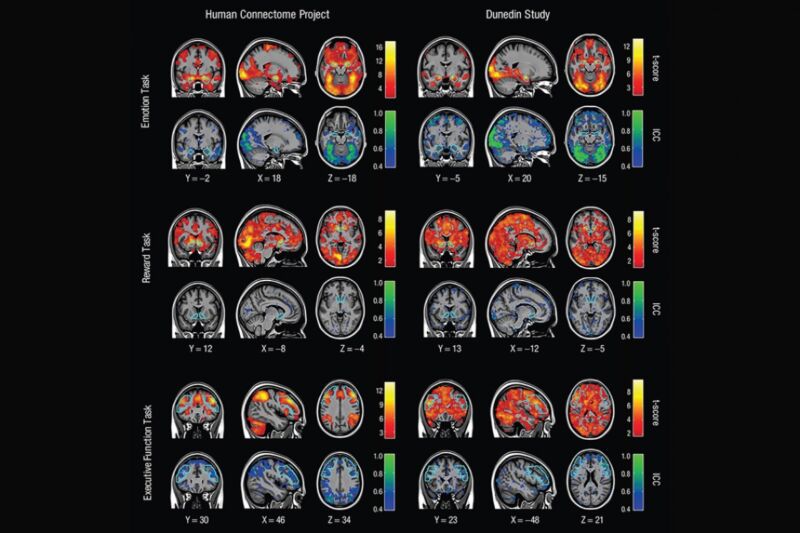Duke scientist questions his own research with new study faulting task fMRI

Enlarge / A new review study has bad news for scientists keen on using task-oriented fMRI to draw conclusions about any one person's brain. (credit: Duke University)
It all started with a rejected grant proposal. Ahmad Hariri, a neuroscientist at Duke University, was interested in using so-called "task fMRI"-in which subjects perform specially designed cognitive tasks while having their brains scanned-combined with genetic testing and psychological evaluations. The goal was to identify specific biomarkers for differences in how people process thoughts and emotions that might determine whether a given subject would be more or less likely to experience depression, anxiety, or age-related cognitive decline like dementia in the future.
"The idea was to collect this data once, then collect it again and again and again and be able to track changes in an individual's brain over time to help us understand what changes over the course of their lives," Hariri told Ars. So he submitted a funding proposal outlining his plans for a longitudinal study along those lines. The proposal hypothesized that an individual's history of trauma, for instance, would map onto how their amygdala reacted to threat-related stimuli. And that would, in turn, enable the researchers to say something about the future mental well-being of the individual.
Hariri and his team designed four core, task-related measures to that end: one targeting the amygdala's threat response, one targeting the hippocampus and memory, one targeting the striatum and reward, and the fourth targeting the prefrontal cortex and executive control. He thought he was on solid scientific ground. So he was shocked when the proposal wasn't even scored by reviewers, based on skepticism regarding the reliability of fMRI to collect that kind of data.
Read 23 remaining paragraphs | Comments